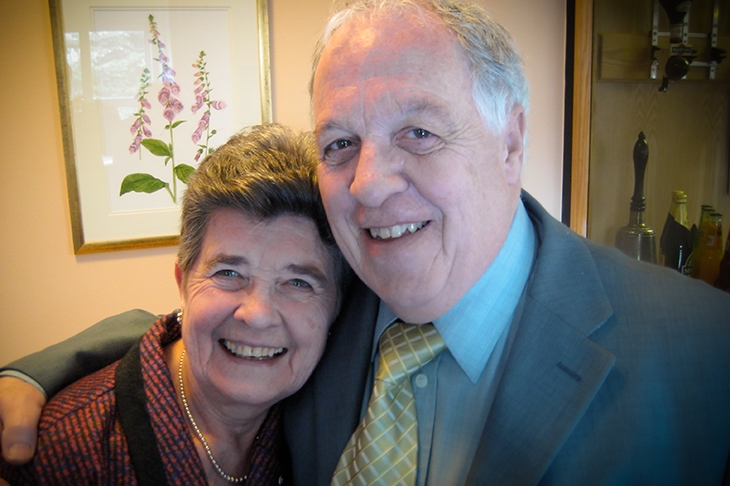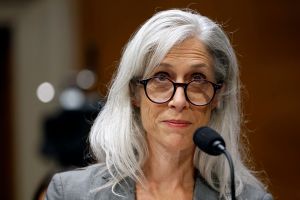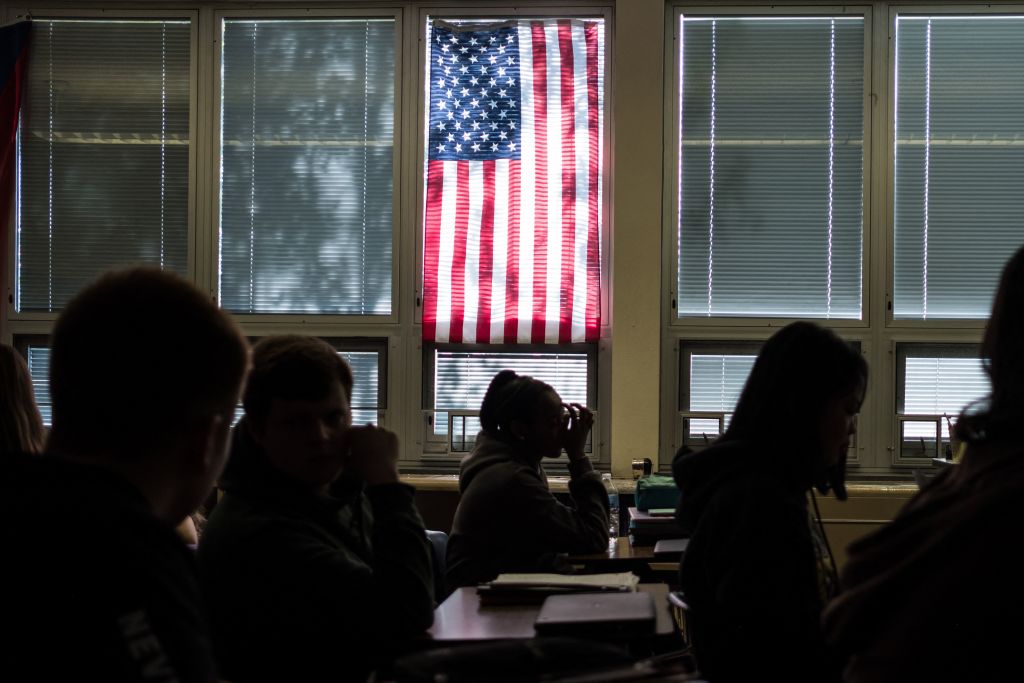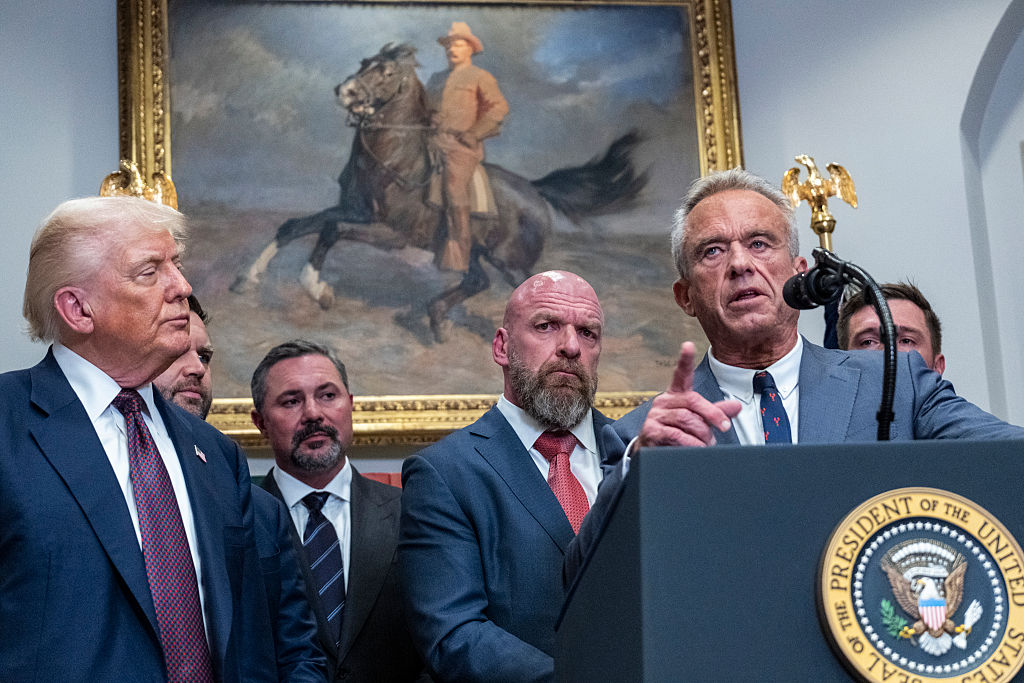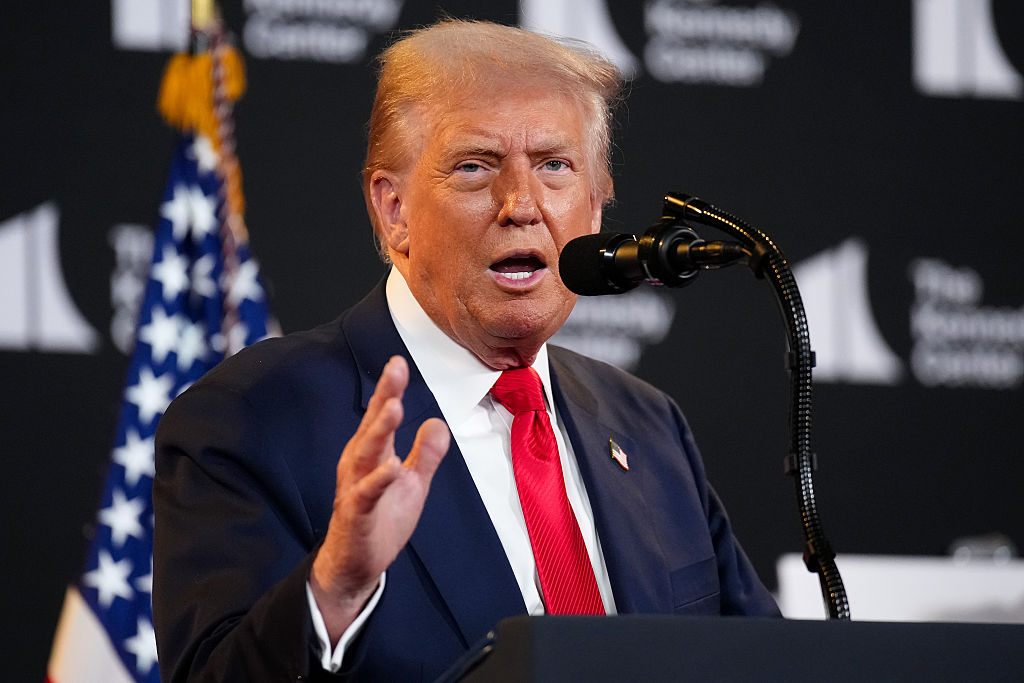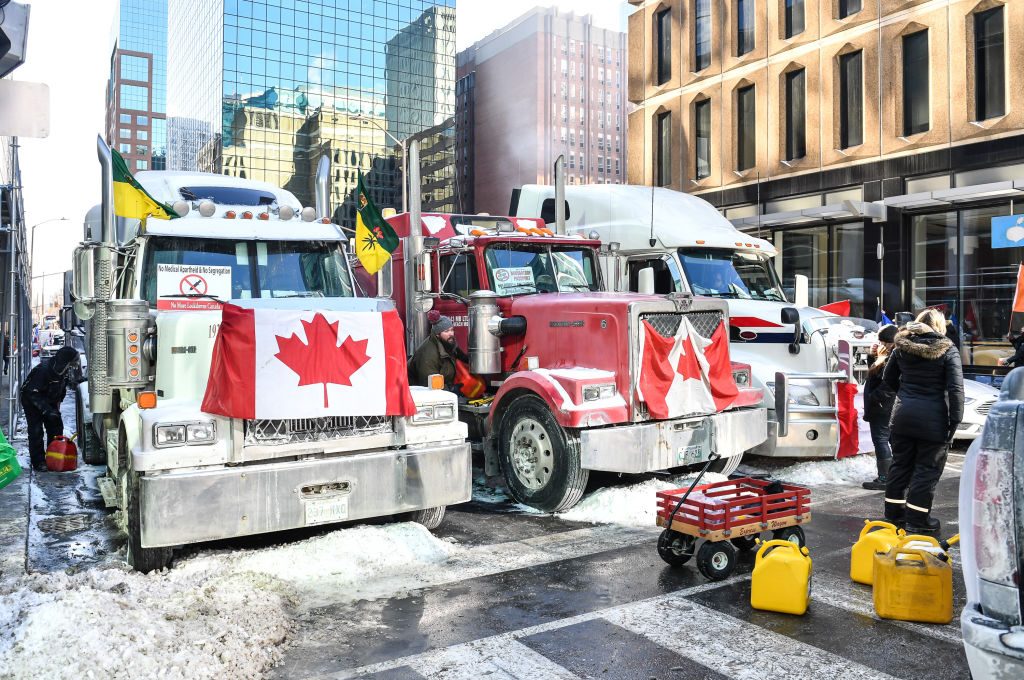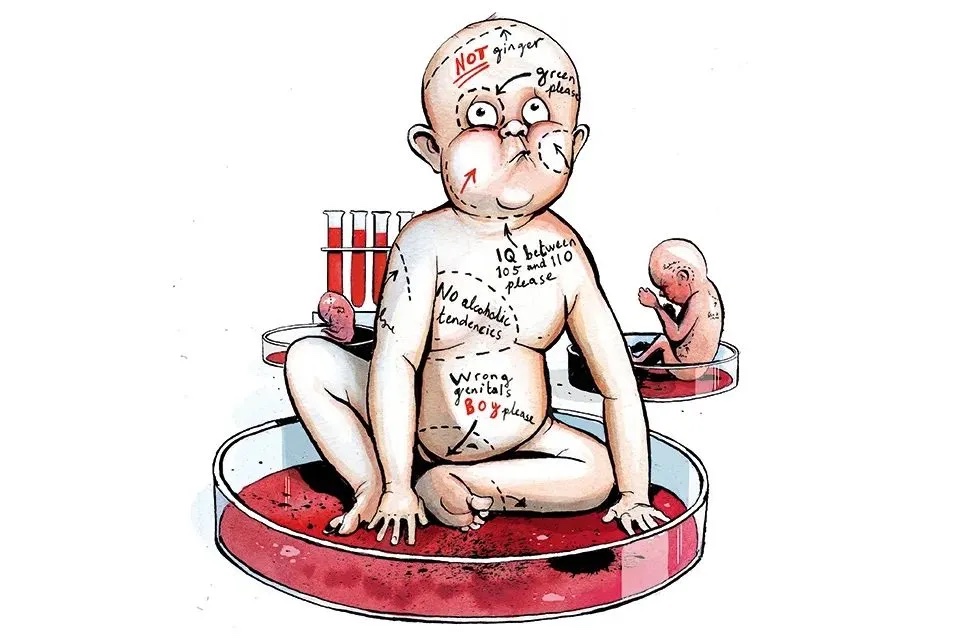I barely recognized my mother when I saw her in the hospital bed the night she died. It had been many months since we were last able to meet, when she was still a force of nature. Now there was almost nothing left of her. The death certificate records that Elizabeth Carol Chamberlain died of dementia and kidney disease aged 88. But it was lockdown that really killed her.
For my parents, like so many people of their generation living out their later years in care homes, lockdown offered not protection but imprisonment. ‘It’s cruel,’ Mam would say, over and over again, in the painful and awkward phone calls that we shared over the last year or so. ‘Just cruel.’ ‘What have you been doing?’ ‘Nothing. Staring at the walls.’
Both my parents had been in and out of care homes and hospital over the past year. My mother had been sliding into dementia for a while, though she could be lucid and sharp as a tack when the mood took her. My father, Les, had recently suffered a stroke, so had been taken into hospital from the care home where they lived.
Gloucestershire’s hospitals would not allow visitors in, and the care home would not allow residents out, so they were separated once more. But after 63 years of marriage, this would be the last time. Convinced that they would never see each other again, Mam had no wish to go on. She decided to stop eating or drinking and died four days later.
Her funeral last month was a sad and strange affair. Everyone had to wear a mask unless they were standing to speak. Singing wasn’t allowed. We all had to be socially distanced. There were about a dozen people in attendance. In normal times, there would have been many more, because Mam touched the lives of so many people.
She had left a very clear set of instructions for a simple funeral and had asked for three hymns, including ‘Away in a Manger’, because it was a favorite and she was called Carol. As the curtains started to close around the coffin and the first bars of ‘The Lord Is My Shepherd’ were played on the organ, my dad said ‘To hell with this’, and we sang anyway. Just him and me.
Both my parents felt that throughout the pandemic, the balance of risks had been wrong. They could not understand why the focus on avoiding COVID-19 now trumped everything else. As care-home residents, they felt that they had become collateral damage in an increasingly politicized debate. More than anything, they felt forgotten.
Like thousands of other care-home residents, they were asked to sign Do Not Resuscitate letters at the outset. And like thousands of others, they agreed, because they didn’t want to be a bother to anyone. Those letters — and the decision to decant hundreds of untested pensioners out of their hospital beds and back into care homes — showed just how expendable they and their generation were considered to be.
Those who survived were shut away, denied visitors, left to believe that they had been abandoned. Many, like my mother, became profoundly depressed. They died in their thousands, often alone. My mother was right about how cruel this was.
If my parents needed to leave the care home for treatment in hospital, they were forced on their return to isolate for two weeks in their rooms. On one occasion, this solitary confinement nearly did for Dad too. After being sent to hospital for tests, he was placed back into a room on his own away from Mam. Over the next few days, he complained repeatedly about being in pain, but attempts to get a GP to enter the care home were rebuffed. I don’t know how the phone triage system works but I’d guess that an 87-year-old in a care home doesn’t go to the front of the line. By the time he was rushed into hospital, he was badly dehydrated and his kidneys were failing. The staff were wonderful and he pulled through, but it was hard not to feel that his life was not regarded as a priority.
Once, frustrated and furious, Mam broke out of the home. She toddled off down the street just as the schools emptied out. She would have loved seeing all the children, who would have been the same age as those she used to teach. But her reward was to be placed back into isolation ‘to protect the other residents’. She pointed out to me that the staff still moved back and forth between the home and the outside world without restriction.
Sometimes she would call, distressed, demanding that I drive down from Scotland to rescue them. I did, once, dodging through the back roads of north Wales on a lockdown-evading mission to spring them from the home they regarded as their prison. It was the only time they had been allowed into the outside world since the start of the lockdown, other than for medical attention. We stopped by the promenade so they could see the sea. I wondered then whether it might be the last time.
Then it was all over. They told me it was peaceful in the end. Inside Dad’s hospital room, behind the closed door and with the blinds drawn, I broke the news to him about Mam and we hugged, because that’s what humans do. I don’t really know whether it was permitted: there were so many restrictions. A couple of days later I spoke to the medical examiner determining the cause of death. ‘I think I’ll say dementia,’ he said. ‘Well, OK, but it was lockdown really,’ I said. ‘She was killed by lockdown.’ He sighed and said they heard that a lot now.
On Father’s Day, I spoke to my dad. ‘Are you doing anything nice?’ I asked. ‘Well, no, I’m still in quarantine after the funeral.’ ‘Quarantine? But the funeral was nearly two weeks ago.’ Since the funeral, Dad has been confined to a room barely 12ft by 12ft, without being allowed out for exercise or anything else. Like the other residents, he has been double-vaccinated. ‘They say they’ll let me out tomorrow. They said those were the rules.’
This article was originally published in The Spectator’s UK magazine. Subscribe to the World edition here.



